$60 will send a local child to PDC’s Bush Camp for four days.
$1,200 will feed the dogs in PDC’s rehabilitation facility for one year.
Painted dogs are incredibly social creatures. Also known as African wild dogs, they live in carefully organized packs in which each dog has a specified job, from hunter to pup babysitter. The dogs rely on each other and are one of the only wild species to care for their sick and old.
Painted dogs used to range across Africa, with 500,000 dogs in 39 countries. Impacted by poaching, road kills, and mining and logging that destroy habitat, now only 7,000 dogs are thought to remain. Zimbabwe, where Painted Dog Conservation (PDC) is headquartered, is one of the last strongholds.
Socio economic challenges in Zimbabwe and poor land management practices create a situation for illegal hunting practices (poaching) to flourish. Poachers set wire snares to catch antelope for the bushmeat trade, and painted dogs are accidentally killed in these deadly traps. So, In addition to working on direct threats like snaring, Painted Dog Conservation works closely with local people to provide income from other sources and to develop in local people an appreciation for the dogs and the value of conservation.
Peter Blinston fell in love with African wild dogs while watching documentaries in his native England. He volunteered for Painted Dog Conservation (PDC) from home in England for two years and then initially moved to Zimbabwe as an unpaid six-month volunteer. He has now been there for twelve years and serves as Managing Director. Peter has helped translate the initial vision for PDC into effective programs.
PDC’s anti-poaching units have been on patrol since 2001 and have collected over 35,000 snares, saving the lives of thousands of animals. They also continue to work closely with the Zimbabwe Parks & Wildlife Management Authority and local law enforcement to run patrols and monitor illegal activity in accordance with the law.
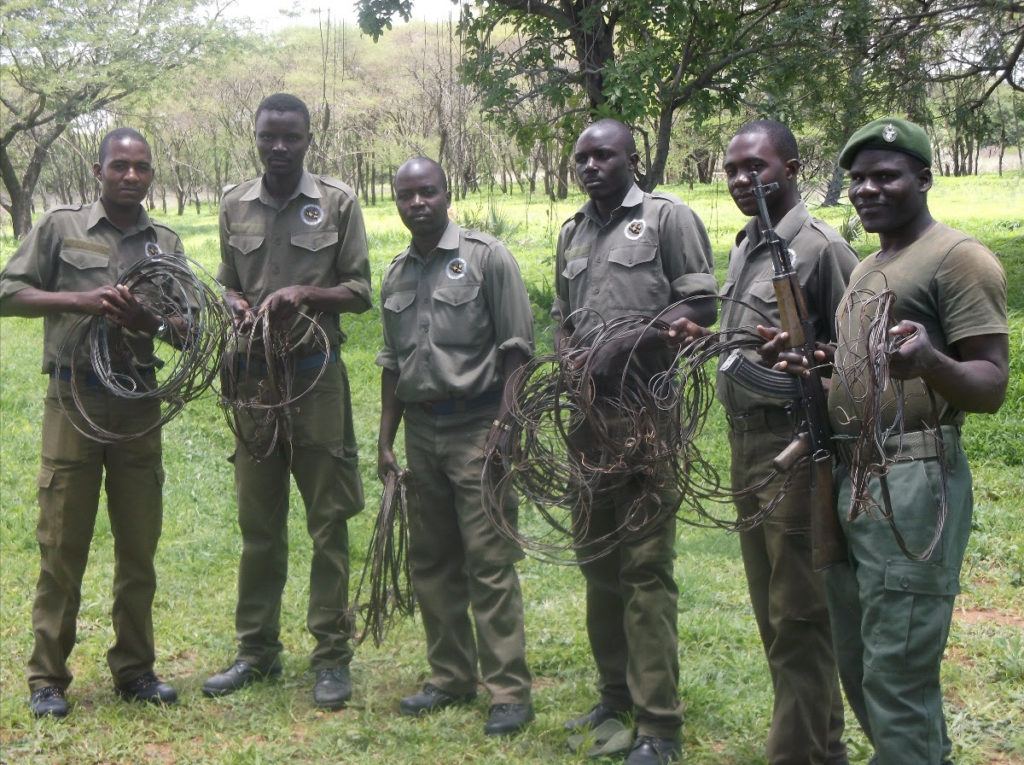
PDC monitors painted dogs using radio collars to track their behavior, identify any causes of injury or death, and keep a close eye on vulnerable packs. They also take samples of blood, feces, and tissue for DNA analysis and to screen for infectious diseases or parasites, and use the results to develop future management plans. This data is compiled into a digital identity register for all painted dogs to better manage conservation efforts.
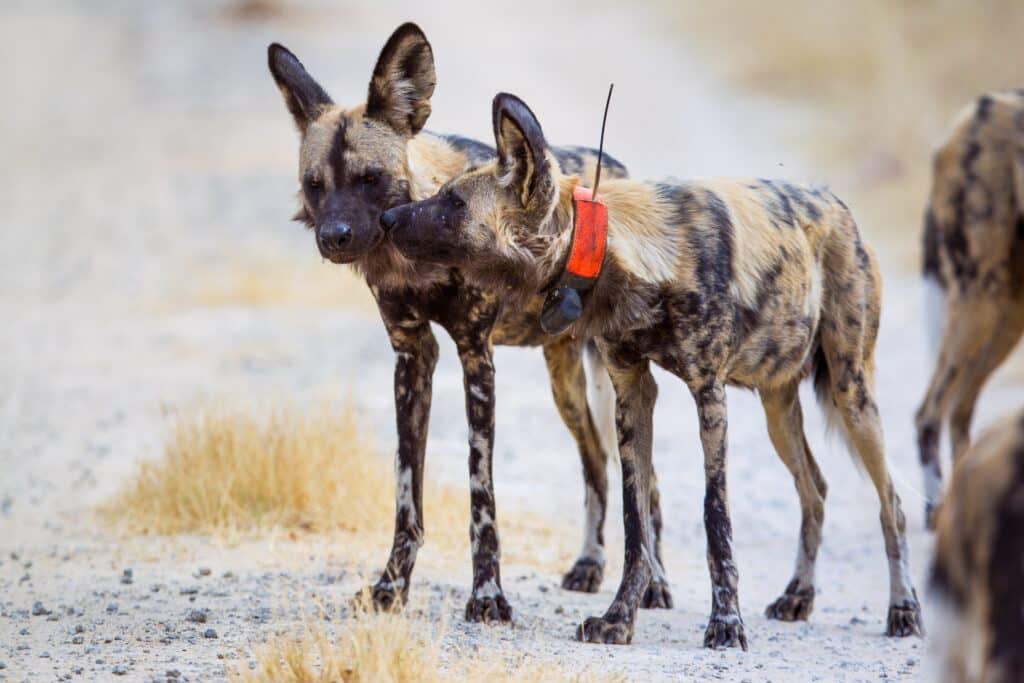
Every year, PDC hosts students at their Iganyana Children’s Bush Camp, where kids get to see painted dogs up close and personal. PDC also visits school children and adults to discuss challenges related to water conservation, environmental degradation, and farming practices. PDC is immensely proud of their education programs, directly helping local children, communities, and painted dogs peacefully coexist.
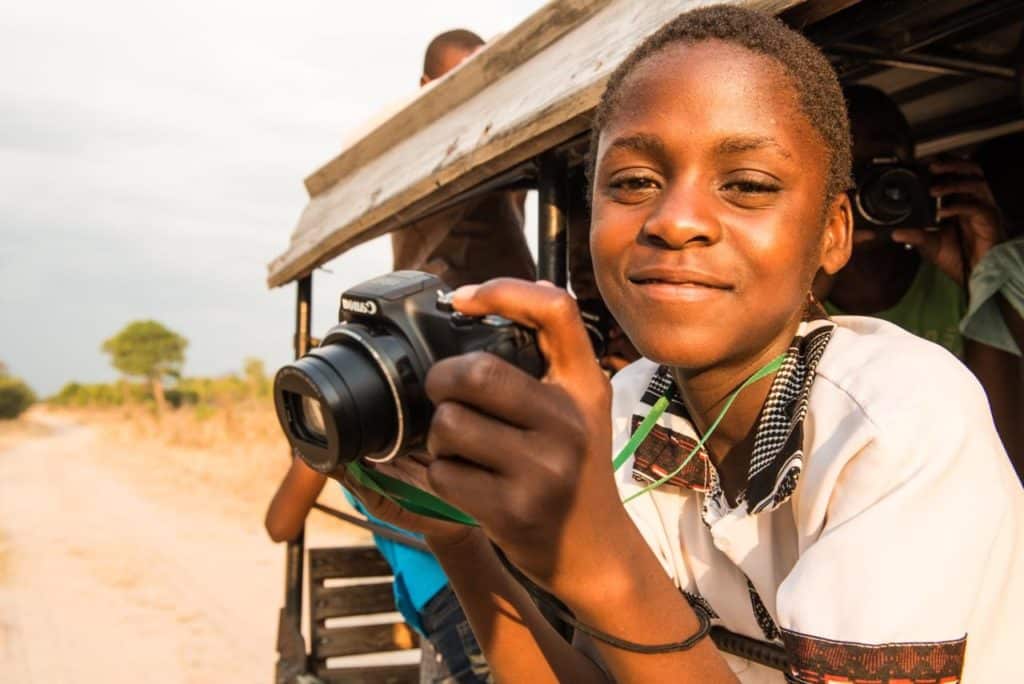
Gender equality and female empowerment is important to PDC. They work to support, develop, and promote local women’s groups based around sustainable natural resource use and management, and offer ways to empower women through garden projects and income derived from sales.
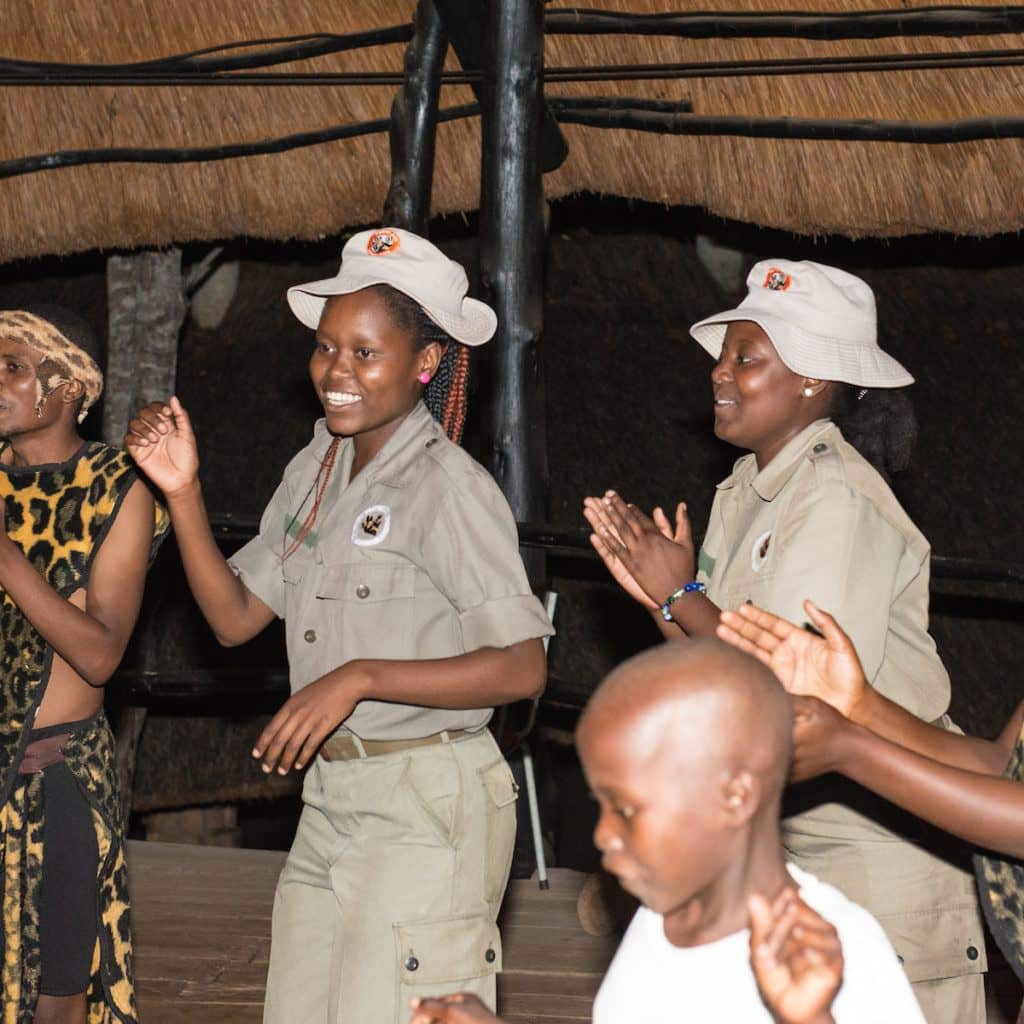
Zimbabwe’s economy has been struggling and this has increased illegal hunting of wildlife to sell for profit. To combat this, PDC employs scouts, both male and female, in their Anti-Poaching Unit, acting as one of the largest employers in their local community. These highly trained scouts help patrol areas bordering Hwange National Park on a daily basis, earning an income to protect wildlife.
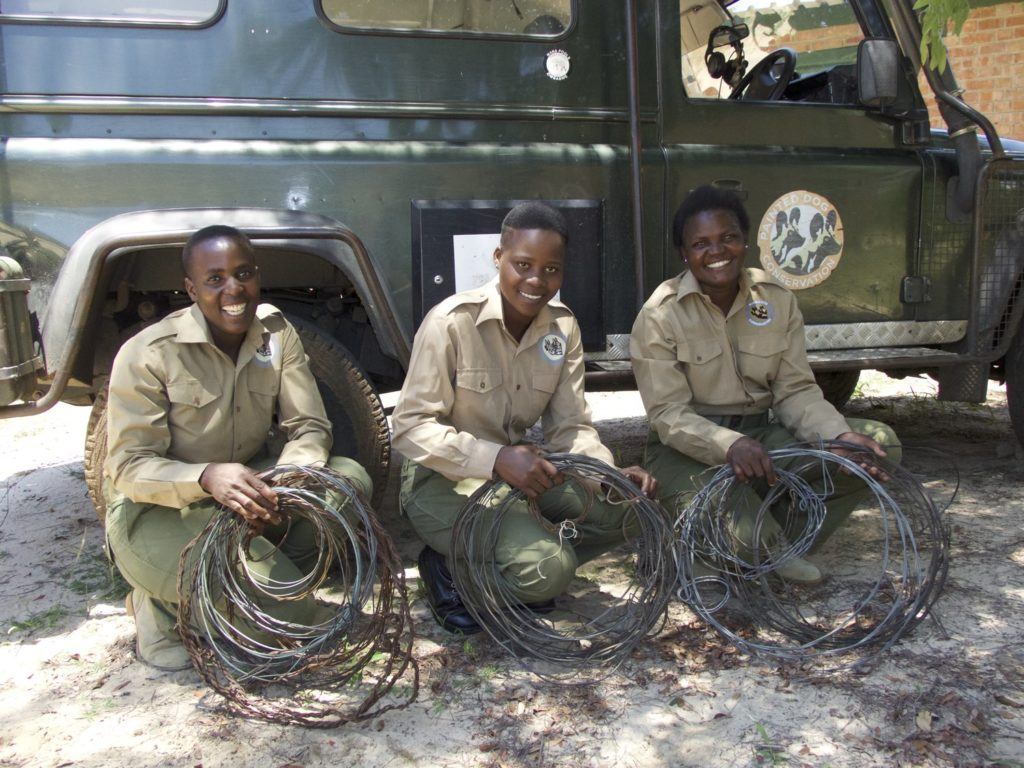
PDC partners with advocacy organizations, like Speak Out for Animals, to improve legislation related to wildlife crime, increase the level of legal protection against the killing of painted dogs, and provide legal awareness workshops for Zimbabwe Parks and Wildlife Management Authority rangers.
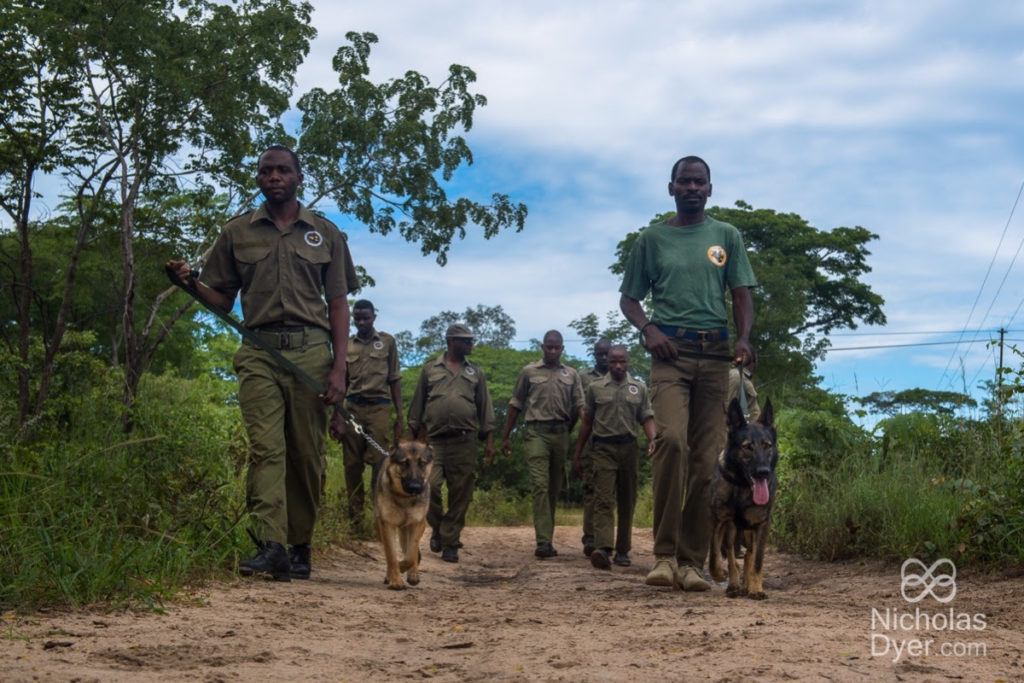
PDC’s Rehabilitation Facility hosts a veterinary clinic to allow PDC to house and care for injured, sick, or orphaned painted dogs with minimal handling until they recover enough to rejoin their families in the wild. Using the Rehabilitation Facility, PDC keeps painted dog numbers up, ensures the safety of threatened packs, and educates the public to improve the perception of the painted dogs.
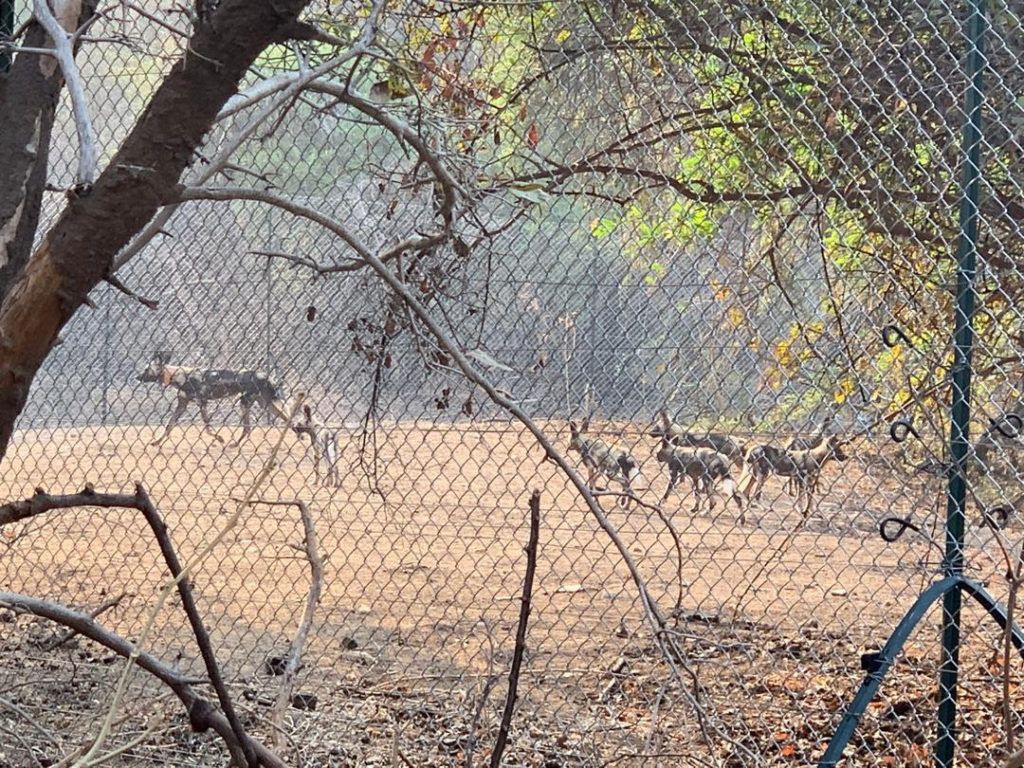
PDC’s Iganyana Art Centre houses crafts, materials, equipment, training, and facilities for youth and adult art projects. The primary goal of the center is to bring financial benefit to local artists, but also to encourage conservation through the sustainable use of natural resources in product design, with artists even transforming snare wire traps into sculptures.
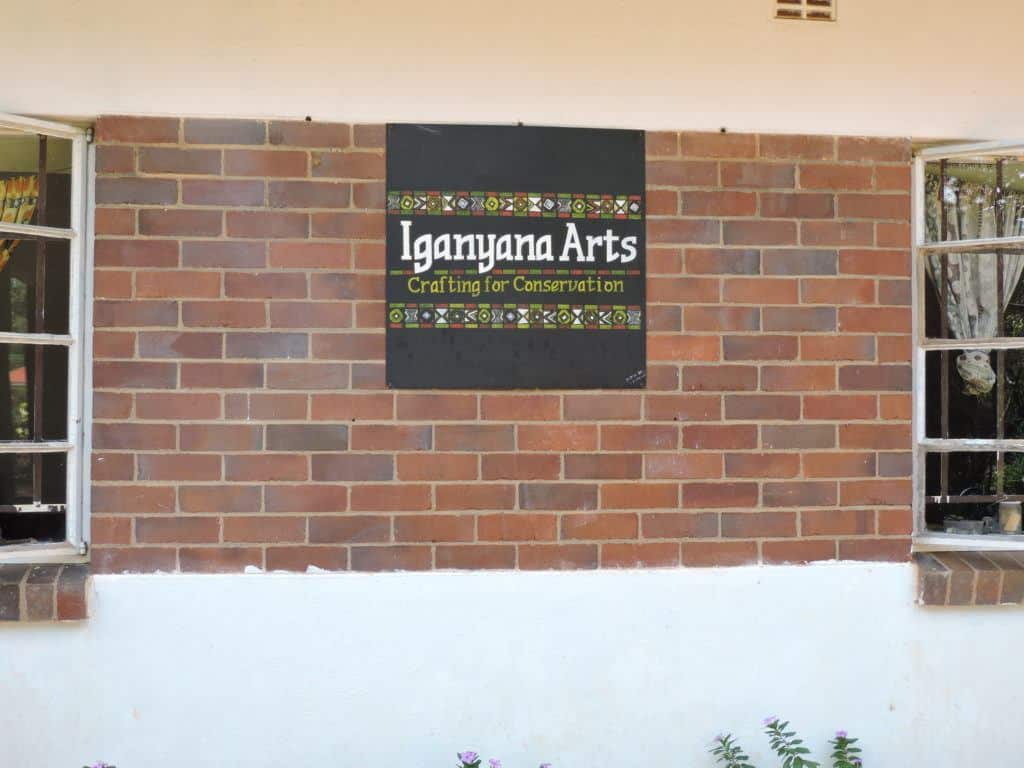
PDC’s anti-poaching units have been on patrol since 2001 and have collected over 35,000 snares, saving the lives of thousands of animals. They also continue to work closely with the Zimbabwe Parks & Wildlife Management Authority and local law enforcement to run patrols and monitor illegal activity in accordance with the law.
PDC monitors painted dogs using radio collars to track their behavior, identify any causes of injury or death, and keep a close eye on vulnerable packs. They also take samples of blood, feces, and tissue for DNA analysis and to screen for infectious diseases or parasites, and use the results to develop future management plans. This data is compiled into a digital identity register for all painted dogs to better manage conservation efforts.
Every year, PDC hosts students at their Iganyana Children’s Bush Camp, where kids get to see painted dogs up close and personal. PDC also visits school children and adults to discuss challenges related to water conservation, environmental degradation, and farming practices. PDC is immensely proud of their education programs, directly helping local children, communities, and painted dogs peacefully coexist.
Gender equality and female empowerment is important to PDC. They work to support, develop, and promote local women’s groups based around sustainable natural resource use and management, and offer ways to empower women through garden projects and income derived from sales.
Zimbabwe’s economy has been struggling and this has increased illegal hunting of wildlife to sell for profit. To combat this, PDC employs scouts, both male and female, in their Anti-Poaching Unit, acting as one of the largest employers in their local community. These highly trained scouts help patrol areas bordering Hwange National Park on a daily basis, earning an income to protect wildlife.
PDC partners with advocacy organizations, like Speak Out for Animals, to improve legislation related to wildlife crime, increase the level of legal protection against the killing of painted dogs, and provide legal awareness workshops for Zimbabwe Parks and Wildlife Management Authority rangers.
PDC’s Rehabilitation Facility hosts a veterinary clinic to allow PDC to house and care for injured, sick, or orphaned painted dogs with minimal handling until they recover enough to rejoin their families in the wild. Using the Rehabilitation Facility, PDC keeps painted dog numbers up, ensures the safety of threatened packs, and educates the public to improve the perception of the painted dogs.
PDC’s Iganyana Art Centre houses crafts, materials, equipment, training, and facilities for youth and adult art projects. The primary goal of the center is to bring financial benefit to local artists, but also to encourage conservation through the sustainable use of natural resources in product design, with artists even transforming snare wire traps into sculptures.
$60 will send a local child to PDC’s Bush Camp for four days.
$1,200 will feed the dogs in PDC’s rehabilitation facility for one year.